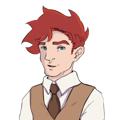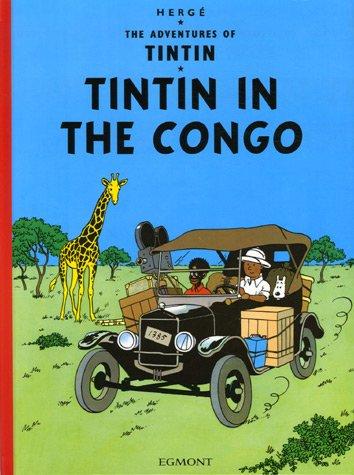Literally Graphic reviewed Tintin in the Congo by Hergé (Tintin, #2)
Review of 'Tintin in the Congo' on 'Goodreads'
1 star
Racism, imperialism, questionable big game hunting practices and publishers apology for all those things aside this is a pretty shit book.
As far as the art goes, while the basic style is the same as all the other Tintin comics I've read, Herge only seemed able to draw a couple different kinds of people. So a lot of the characters end up looking the same with very minor differences.
The characters are also pretty flat and lackluster in this story. Missing are most of the people that I've come to associate with Tintin. Everyone who was there instead filled rather cliche and stereotypical rolls. Even Tintin himself is completely devoid of any character, serving only as a Gary Stew type character for readers to live out their childish dreams through.
Moving along to the story, much like the characters the plot of this particular volume was extremely formulaic and cliche. I think Herge might have printed off a list of events that happen in boy's adventures stories set in Africa. With Tintin effortlessly traipsing through hazard after potentially thrilling hazard, everyone inexplicably knows who Tintin is and much like in Ben Hur the other characters immediately wonder at seeing such a person as the main character!
While never (as I recall anyway) quite progressive, this early book does mark a rather low point for Herge. Of course, as the publisher duely notes, these ideas were very common for the time so we really shouldn't hold it against him. Or should we? I mean a freaking monkey speaks better English then the Congo natives!
But really, I have no answer for this. I was a bit flummoxed as to why my library system seemed to have so very many copies of this book, not only because of its painfully outdated attitudes and lack of skill, but also because the publisher has done a very good job of practically erasing it from the Tintin mythos. Having read a majority of the Tintin books growing up I only recently discovered that this and The Land of the Soviets even existed.
I think it's probably unwise to completely ignore the way things used to be. Especially because sometimes we really aren't all that different... Ultimately, as a privileged person, I do feel like this historical artifact of attitudes gone by did teach me more about the kinds of people we used to be, which obviously helps develop me into a more conscientious and thoughtful person in the future.

